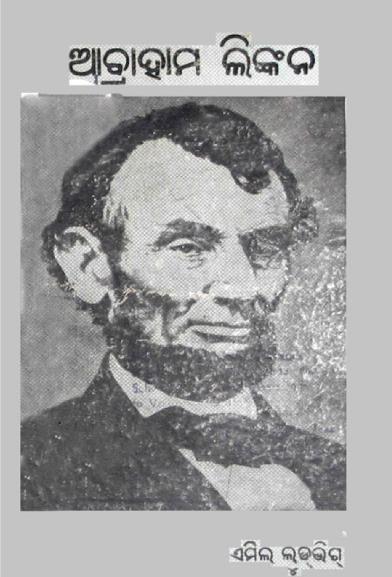In the realm of biographical literature, few figures inspire as much admiration and intrigue as Abraham Lincoln, the 16th President of the United States. His life, marked by perseverance and monumental leadership during one of the nation’s most tumultuous times, has been chronicled in various forms. Among these is Abraham Lincoln, a biography by Emil Ludwig, translated into Odia by Akuli Misra and published in 1955. This book not only serves as a detailed account of Lincoln’s life but also as a lens through which readers can explore the complexities of leadership, morality, and social justice.
Ludwig, a renowned biographer, takes readers on a journey through Lincoln’s early years, highlighting the challenging circumstances of his upbringing. Born into poverty in a log cabin in Kentucky, Lincoln faced considerable obstacles that would have deterred many. However, Ludwig deftly illustrates how these early hardships shaped Lincoln’s character and fueled his ambition. The biography paints a vivid picture of his quest for knowledge, his formative experiences in Indiana, and how his early encounters with law and politics laid the groundwork for his future.
One of the remarkable aspects of Ludwig’s narrative is his ability to humanize Lincoln. The biography goes beyond the mere facts of Lincoln’s public life, delving into his personal struggles, relationships, and the emotional toll of leadership during the Civil War. Readers are afforded insight into Lincoln’s thoughts and feelings as he grappled with the enormity of his responsibilities, reflecting on the moral dilemmas he faced while navigating the path to emancipation and national unity. This psychological depth adds richness to the portrait of Lincoln, making him more relatable and inspiring.
Akuli Misra’s translation into Odia brings this compelling narrative to a wider audience, allowing readers to engage with Lincoln’s story in their native language. Misra’s translation is crucial in making the themes of the biography accessible to the Odia-speaking population, fostering a greater understanding of Lincoln’s impact on global history and the principles of democracy and equality that he championed.
The biography also addresses the broader social context of Lincoln’s presidency, delving into the intricacies of the American Civil War and the fight against slavery. Ludwig articulates how Lincoln’s leadership was characterized by a commitment to preserving the Union and his belief that true democracy necessitated the abolition of slavery. This historical perspective invites readers to reflect on the universal values of justice, human rights, and the ongoing struggle for equality—issues that remain relevant in today’s society.
Moreover, Abraham Lincoln inspires readers not just as a political leader, but as a moral figure. His resolve, empathy, and dedication to his principles serve as a guiding light for contemporary leaders and citizens alike. The biography encourages readers to consider what it means to lead with integrity in times of crisis and to work tirelessly for the greater good.
Books Info
| Books name | Abraham Lincoln / ଆବ୍ରାହାମ ଲିଙ୍କନ |
| Author | Emil Ludwig |
| No Of pages | 12 |
| Publisher | Chandrasekhar Pustakalaya |
| Publication | 1955 |
| Printed At | Sri Prabodhachandra Biswas |
| Distributor | NA |

